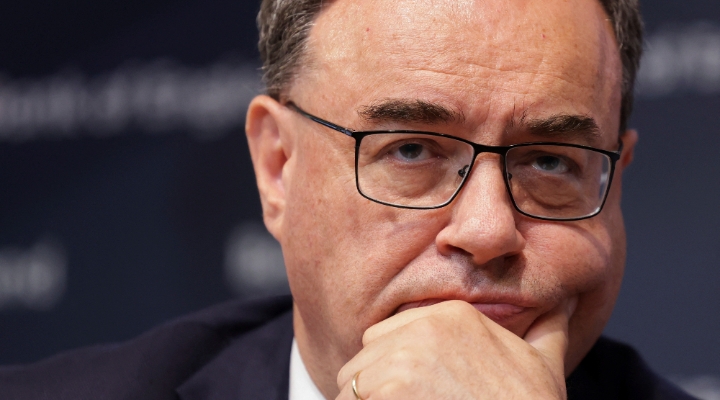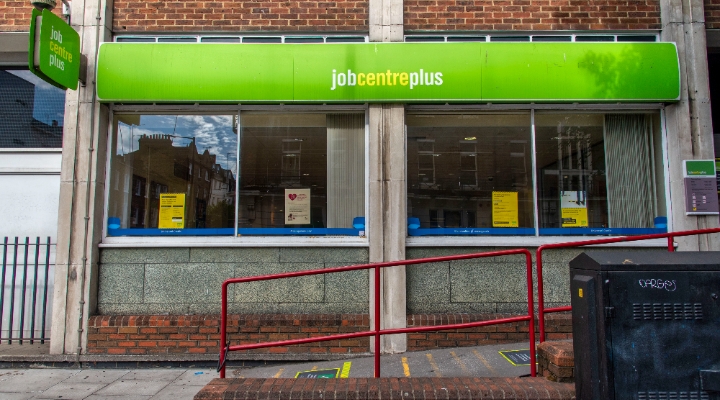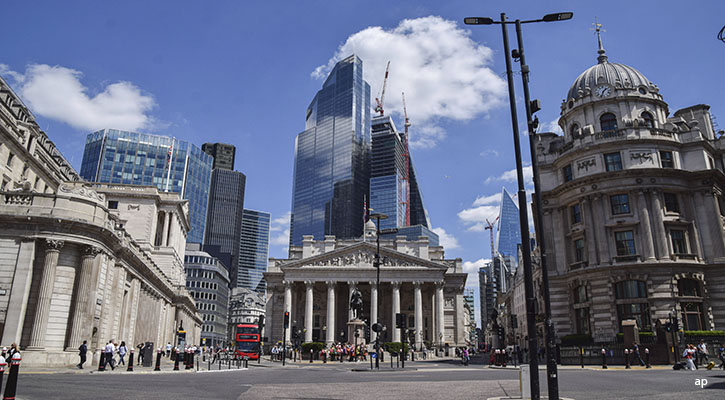
Our US colleagues have asked a key question: when are mortgage rates going to fall? Stateside, this of course depends whether the US Federal Reserve is "done" in raising interest rates and our analysts think so.
Here in the UK this conversation seems a little premature, at least in terms of interest rates. A journalist’s question at this month’s Bank of England (BoE) elicited a "nice try" from governor Andrew Bailey. But there is at least a sense of adjusted expectations after the "mortgage mayhem" of the early summer when banks were pulling deals and rates were soaring. A drop in inflation for June has helped the case that the worst is over.
What’s Changed?
Nationwide, NatWest, HSBC, TSB, Santander, Halifax have all cut some mortgage rates this month. These changes weren’t big in the context of 2023's increases, which took rates to 15-year highs, but they have encouraged speculation we may have seen rates peak.
Banks and building societies are also reaching out to customers after the government’s "Mortgage Charter" – which aims to relieve some of the pressures on households – and stave off repossessions. People now have the choice between extending their mortgage term up to 40 years (the norm is 25) or switching to interest only payments for six months.
Anything Else Going On?
By pure coincidence my mortgage lender emailed me on the same day that Italy caused a major stir by levying a windfall tax on banks (the country later backtracked).
A similar announcement seems unlikely in the UK for various reasons, but the warning may be enough to change behaviour. Certainly the banks are "on notice" after being dragged into Downing Street to explain why savers have not benefited from interest rate risis – which is the core of the Meloni/Salvini case that the Italian tax has a moral argument.
One of Britain’s biggest mortgage lenders, NatWest, has just lost its chief executive over the Farage row, a story that appears to have receded from the news agenda for a while. But relations between the government, which is NatWest’s biggest shareholder, and the banking sector are currently fragile, to say the least.
When Will BoE Say 'We're Done'?
The argument seems to be obvious: if inflation is now falling – and hopefully that trend can be sustained – why can’t the Bank stop hiking or even start cutting rates?
Policymakers argue the job is not completely done, as they explained at the start of the month. Effectively their guidance that rates will be "higher for longer". Inflation is forecast to fall to 5% by the end of this year and go back to the 2% target by 2025. But the journey back to "normal" inflation is expected to be a bumpy one, with potential increases to the consumer price index (CPI) likely in the autumn.
Interest rates are now expected to peak at 5.75%. After the latest rise to 5.25%, the 14th in a row, Nationwide said it would increase its "base mortgage rate" to 6.75%. Its "standard mortgage rate" will stay at 7.99%. But these are default rates people are moved on to after their fixed-rate deals come to an end. In other words, homeowners don’t stay on them for long and switch to more competitive products. Still, average two-year fixes are around 7% in the wider market.
Is the Worst Over?
Sticking with the theme of fixed-rate mortgages, these products have become more popular in the last decade: according to government body UK Finance, the proportion of new homeowners mortgages taken out on fixed rates has gone from below 50% in 2010 to above 90% in 2021. For a long stretch of that era, the perception that interest rates would stay low for a long time was pervasive. Time has proven the argument wrong.
Hindsight is wonderful: a tracker may have been the better option as rates fell, but for those lucky or farsighted enough in 2021 to lock in low rates, a fixed rate would have been a smarter choice. "Why didn't I get a 10-year fix at 1%?" is a common way that people beat themselves up over mortgage rates.
Those who fixed as interest rates rose from 0.1% in 5.25% in less than two years may have shortlived relief, however. In the latest monetary policy report by the Bank of England, this line stood out: "only around half of mortgagor households are estimated to have faced an increase in mortgage repayments since rates started to rise in late 2021. There are around four million more households who have not yet faced increased mortgage costs but will do so by the end of 2026."
Now the Bank is both worried about this but also keen to see some impact from higher rates on spending. The technical term for this is "transmission", which measures the impact of rate rises on the economy. If homeowners are paying more on their mortgages, they will spend less in the economy, which in theory should reduce inflation. That’s the whole point of this exercise and illustrates the difficult position the Bank is in; its remit is to bring inflation down and pain for mortgage holders (and the high street) may be the collateral damage required to do this.
Reacting to the July inflation numbers, Rob Morgan, chief investment analyst at Charles Stanley said:
"Although inflation will now subside towards the target level of 2%, it is likely households will have to endure relatively high interest rates for some time to come. The BoE may need to keep rates elevated well into 2024 to keep inflationary pressures at bay, which will keep access to cheap borrowing closed off."
If Interest Rates Fall Will Mortgage Rates Fall Too?
We're a way off our first rate cut so lenders have to second guess where they think rates go next, and that depends on inflation expectations too.
There are a number of moving parts in mortgage pricing: the official Bank Rate, of course, but government bond yields, overnight swap rates have an influence.
Logically, there’s a connection between interest rates and variable rate mortgages. Trackers in particular have direct link, so a 0.25% increase in the Bank Rate will lead to an identical move in your mortgage rates. Naturally these products were attractive in the era when rates were 1% or below. Not so much now.
For fixed-rate products there are a number of variables: the two-year overnight index swap (OIS) rate is a key rate for shorter term fixes, while government bond yields are used to price longer term products. Currently the "yield curve" is inverted in that shorter-term gilt yields are higher than longer term ones. A two-year gilt yields 5.12%, just below current interest rates, the 5-year yields 4.62% and the 10-year is a touch lower at 4.61%. At the moment the best five and 10-year fixed rate mortgages are around 5%, so you can see the rates are comparable. Gilt yields factor in inflation, interest rate and recession assumptions. Turbulence in the government bond market in autumn 2022 and earlier this summer caused a rise in yields and triggered banks to pull mortgage deals.
Amanda Aumonier, head of mortgage operations at homeowner website Better.co.uk said: “Key lenders have reduced fixed rates in the last two weeks. If the Bank of England increases the base rate in September, variable rates will increase and fixed rates may also rise.”
What Next?
Keep a close eye on the inflation data in the next few months. The BoE's next meeting is on September 21 and the market is expecting another rate hike. The next one after that is November 2. Mortgage lenders and investors will be closely monitoring the messaging coming out of these meetings.
The "final hike" will not be advertised as such but will be a significant moment for those mortgage holders coming off fixed rates this year and next. Analysts expect the Federal Reserve to hold rates now until the end of this year and start cutting in 2024. How quickly the UK catches up remains to be seen.




























